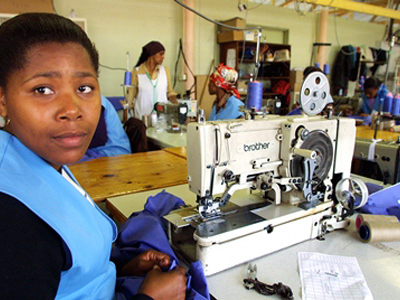Investing in the Western Cape
The Western Cape Department of Economic Development and Tourism's vision is to grow the regional economy by focussing on five key areas of development:
- Economic strategy and policies.
- Enabling business environment.
- Demand-led private sector driven support.
- Infrastructure-led growth.
- Decreased skill gap.
Sustainable Economic Growth
According to the 2nd Quarter 2012 Bureau for Economic Research Report, the Western Cape economy, after contracting by 1.3% year-on-year during 2009, picked up to register growth of 3.1% year-on-year during 2010. This is again higher than the national economy, which grew at 2.9% year-on-year in 2010.A range of economic indicators have proven that the regional economic recovery was well-established by the first quarter of 2011. The recovery started during the third quarter of 2009 and has been led by improving business conditions in the tertiary sector, which is the mainstay of the Western Cape economy.
Employment Growth
The Western Cape economy created 5 000 jobs during the first quarter of 2012; this translates into a 0.3% increase. Compared to the same period in 2011, employment was up by 63 000 or 3.5% year-on-year.The agricultural sector led the pack in creating employment opportunities, closely followed by mining, manufacturing, utilities and construction.
The high employment growth sectors, with employment expanding at rates between 2.5% and 3.5% were:
- Automotive - 3.1% per annum, 2010-15.
- Business services -2.8% (this figure excludes ICT).
- Tourism 2.7%.
- Wholesale, retail, catering and accommodation - 2.5%.

Factors that are likely to affect the Western Cape economy's performance in the future include:
Negatives
- A global economic environment, which remains uncertain, now even more so with political challenges in Europe also surfacing.
- Western Cape business confidence, which was lower, moving from 49 to 45 index points.
- Household expenditure, which is showing signs of slowing. The Western Cape has a vibrant services sector, of which the retail and related sectors are significant contributors.
- Lower levels of consumer spending will therefore no doubt negatively influence the province's economic outlook.
- Job creation, which is not keeping pace with the number of new and re-entrants into the labour market. This could keep unemployment levels relatively high and further depress consumer spending.
Positives
- Confidence in key financial services sectors in the province remains at relatively high levels. This should see continued growth in the finance sector, which in the Western Cape is a significant contributor to overall economic activity.
- Western Cape manufacturing confidence, which rose from 47 to 58 index points during 2012 second quarter, is high even amid slowing global demand.
- CPI inflation, which continues to surprise on the downside, should provide some relief to consumers and offer support to spending.
- The weaker rand should support WC exports; however, it may not be enough to offset the effects of a more generalised slowdown in global demand.
Enabling Forces
The Western Cape Economic Development Agency (EDA) opened its doors in April 2012 and set on its primary mandate of ensuring functional coordination and partnerships between role players in the regional economy.
Among other things, EDA seeks to:
- Build a shared economic vision, strategy and brand for the province.
- Shift away from a "culture of disaggregation" to a collaborative approach on the economy, which incorporates business, communities and all spheres of government.
- Undertake economic and market intelligence, so that economic development strategies become evidence-based.
- Coordinate the economic efforts of the Western Cape Government and local governments of the province, including its major metropole, the City of Cape Town.
- Devise a single strategy towards contested activities and markets, such as visitors, firms, events and festivals, students, investors, institutions, innovators and entrepreneurs, research and more.
Important Contacts:
Western Cape Government (DEDAT)
Tel: 021 483 5065
Fax: 021 483 3409
E-mail: ecohead@westerncape.gov.za
Wesgro
Tel: 021 487 8600
E-mail: info@wesgro.co.za


